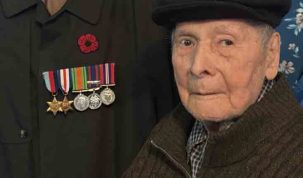(Today’s Northumberland file photo)
For years, Cobourg has watched as a small group of vocal advocates have dominated the conversation around homelessness and addiction. They have positioned themselves as the sole moral authority—saviours whose ideology must not be questioned. The problem is, their approach has failed. Repeatedly. And Cobourg is paying the price.
The recent attack on Mayor Lucas Cleveland underscores just how radicalized and unreasonable these groups have become. A Change.org petition—void of legal standing—is being weaponized to smear a mayor who has done what true leaders must: protect the safety and wellbeing of residents in the face of disorder, escalating addiction, and rising crime.
These advocacy groups are not new. For years, they’ve discouraged those in crisis from engaging with anyone outside their circle. During recent encampment relocations, they were seen guiding individuals from one location to another—exercising a disturbing, almost possessive control over the homeless population.
This isn’t empowerment. It’s dependency. And it’s deliberate.
Rather than supporting paths to recovery, the local advocacy movement has doubled down on keeping people exactly where they are: on the streets, in active addiction, with few expectations and no accountability. They rally for funding to distribute drug paraphernalia. They oppose enforcement. They demand public policy bend to their worldview, while simultaneously blaming every ill on “the system.”
To them, homelessness is not a complex problem—it’s a moral battleground. Their ideology asserts that everyone on the street is a victim of capitalism, and that any attempt to address addiction, crime, or public safety is inherently oppressive. In this worldview, even violent or destructive behavior is justified.
We’ve seen this ideology before—in larger cities that are now struggling to regain control of their streets.
The pattern is familiar: more funding, more nonprofits, more slogans about “harm reduction”—but with each passing year, more overdoses, more violence, and fewer success stories. The model doesn’t work. Cobourg is simply the latest town to be caught in its wake.
Meanwhile, the homelessness and addiction sector has ballooned into a billion-dollar industry. From NGOs and government contracts to the manufacture of Naloxone, tents, and drug kits, there is no incentive to solve the crisis—only to sustain it.
The much-touted “Housing First” model has largely failed in practice. A million homes won’t help people who are too unwell to maintain them. Sobriety, support, and structure must come first. But advocates refuse to accept this reality. They cling to rhetoric that sounds compassionate but produces real-world harm.
Their movement has become a kind of cult—complete with insider language, shaming tactics, and an “us vs. them” mindset. Disagree, and you’ll be labeled a bigot, fearmonger, or oppressor. Offer alternatives, and you’ll be met with personal attacks, public humiliation, and attempts to silence you.
Most Cobourg residents don’t subscribe to this extremism. They believe in the rule of law, community standards, and the democratic principle that everyone—regardless of circumstance—is accountable for their actions. These are not radical beliefs. They are the foundation of a functional society.
The recent attempt to vilify Mayor Cleveland shows just how threatened this advocacy machine feels when challenged by common sense and leadership. And it should be a wake-up call to all of us.
Enough is enough.
The time has come to retake the narrative—not with cruelty, but with clarity. Homelessness and addiction are complex issues that require honest solutions, not ideological crusades. Cobourg deserves better. Our community, our parks, our safety, and our future depend on it.
I support Mayor Cleveland. And I know I’m not alone.
Margaret Taylor
Northumberland County Resident























